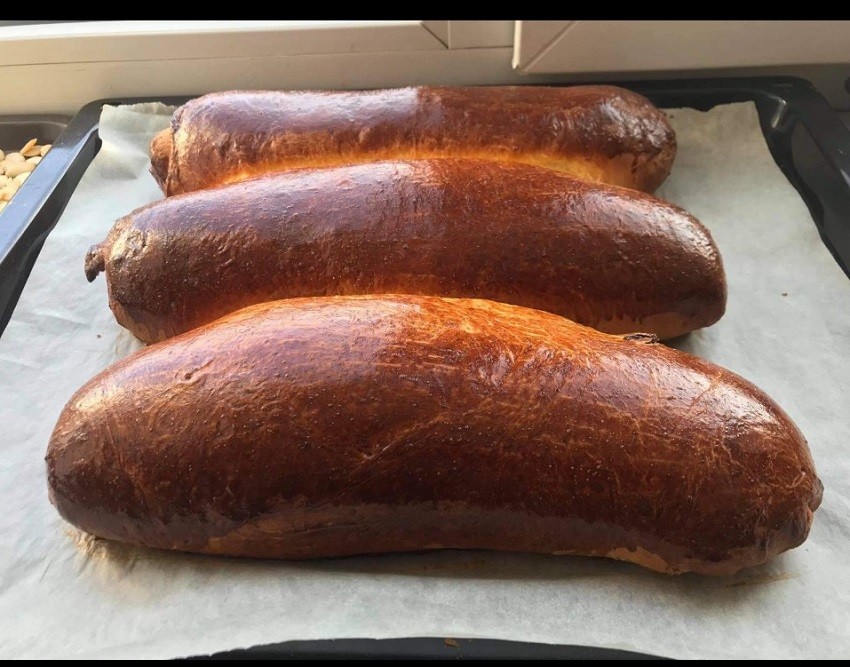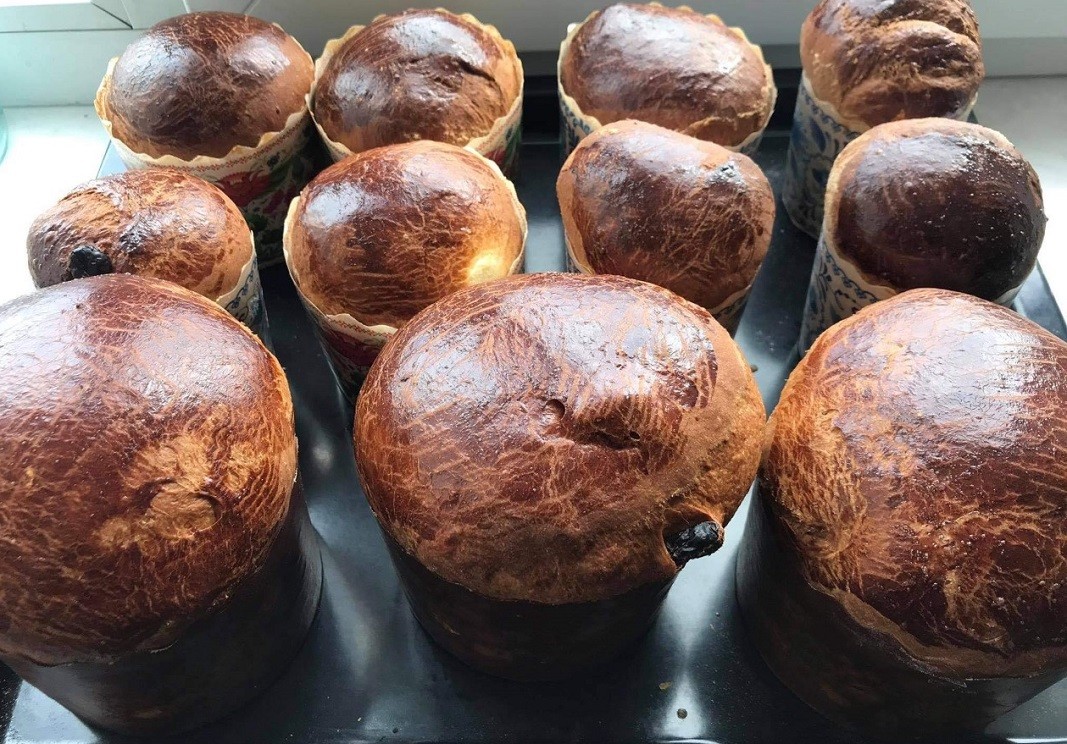When Galina Manolova, a sixth-generation Bulgarian born in the village of Cairaclia, Moldova, published her account of an Easter egg game from her childhood, she never imagined the huge response it would provoke among Bulgarians around the world. She received dozens of photos from people who had shown their children and grandchildren this Bessarabian Easter pastime, and the delighted sparkle in the eyes of the young ones was precious.
"All the eggs (one from each player) are placed in a line as far apart as a tennis ball in a certain frame. Each participant throws the ball from a certain distance. The goal is to push an egg out of the frame. Any egg that ends up outside the frame is a well-deserved trophy for the person who pushed it. The one who loses his egg can continue the game by placing a new one - explains the simple but fun rules of the game Galina Manolova.

- We played in the street, on the ground. Each egg was made a bed of sand and dirt to stand upright. The trick was to both knock it out and not smash it, because some of the kids would eat the egg and others would bring it to mom and dad to show it off. I'll never forget the thrill of that game."
Being an ethnographer Galina Manolova started to look for the roots of this game, but did not find them in Bulgaria, so she hopes that Radio Bulgaria can help in finding the source of this Easter pastime: "When I wrote about this game, I was sure it still existed, and what was my surprise when I found out the game was extinct! I discovered that it used to be popular not only in my home village of Cairaclia, but also in nearby villages, mostly the Bulgarian ones," says Galina Manolova in an interview by Desislava Semkovska, "I searched for sources to find out if it was a Moldovan, Ukrainian or Russian influence. But no, this game was popular only among Bulgarian children. We are quite a big community and our compatriots from Cairaclia have been teaching this game to Bulgarian children in Plovdiv and Sofia for the second year now. As an ethnographer, I am very happy that the game is making a return to Bulgaria and I am sure it is enjoying a revival here in Bessarabia!
Galina Manolova keeps many other fond memories of her childhood Easter. One of them is related to the invariable holiday treat - the sweet Easter bread - kozunak.

"In our country it is called "paska". I remember how the aroma of freshly baked kozunaks enveloped the whole village as if in a cloud. Egg shells were put in front of every house - such was the tradition, and kozunaks were made in huge quantities with 40, 60 to 100 eggs, because on this holiday the whole family would gather. And I had the most responsible task of smearing yolk on the raised Kozunaks before they were put to bake - to make them glossy. Then they were blessed in our village church."
Galina is happy to tell us about the dyeing of Easter eggs and the fact that the Bulgarians in Bessarabia did not dye their eggs because the settlers there came from areas of Bulgaria where this practice was not observed at that time - Sliven, Yambol, Dobrudja.
Food is an important element of Easter preparation: "For Bulgarians in Bessarabia, because they live among Russians, Ukrainians and Moldovans, the Easter menu has drifted away from the traditional Easter meal in Bulgaria. When I started working as an ethnographer and our grandmothers realised that in Bulgaria the main elements of the table were lamb, drob-sarma (a dish of cubed liver, rice and herbs) and green salad, they remembered that Bulgarians roasted lamb here too," says Galina Manolova.

Two more things are important for the Bulgarians in Cairaclia on this holiday: on Easter they visit the graves of their deceased loved ones and pay their respects to them. They also celebrate a memorial service for the dead.
"We Bulgarians are a resilient people, we hold on to our traditions, no matter where we are," says Galina Manolova. - I wish all Bulgarians this Easter to find their peace and to have more serenity and light in their souls."
Photos: Personal archive
English version: Elizabeth Radkova
On November 15, 1910, Russian pilot Boris Maslenikov carried out the first airplane flight in Bulgaria. He took off in a Farman-type aircraft from an improvised airfield near Sofia. In the days that followed, several more demonstration flights were..
On 16 April 1879, the deputies of the Constituent Assembly debated, approved and signed Bulgaria’s first constitution, the Tarnovo Constitution. This document established the legal basis for the establishment of the new Bulgarian state following the..
8 November is celebrated as the Feast of Saint Michael the Archangel. According to church legend, Archangel Michael commands the whole army of angels in the fight against the forces of darkness, and during the second coming of the Son of God, he will..

+359 2 9336 661
